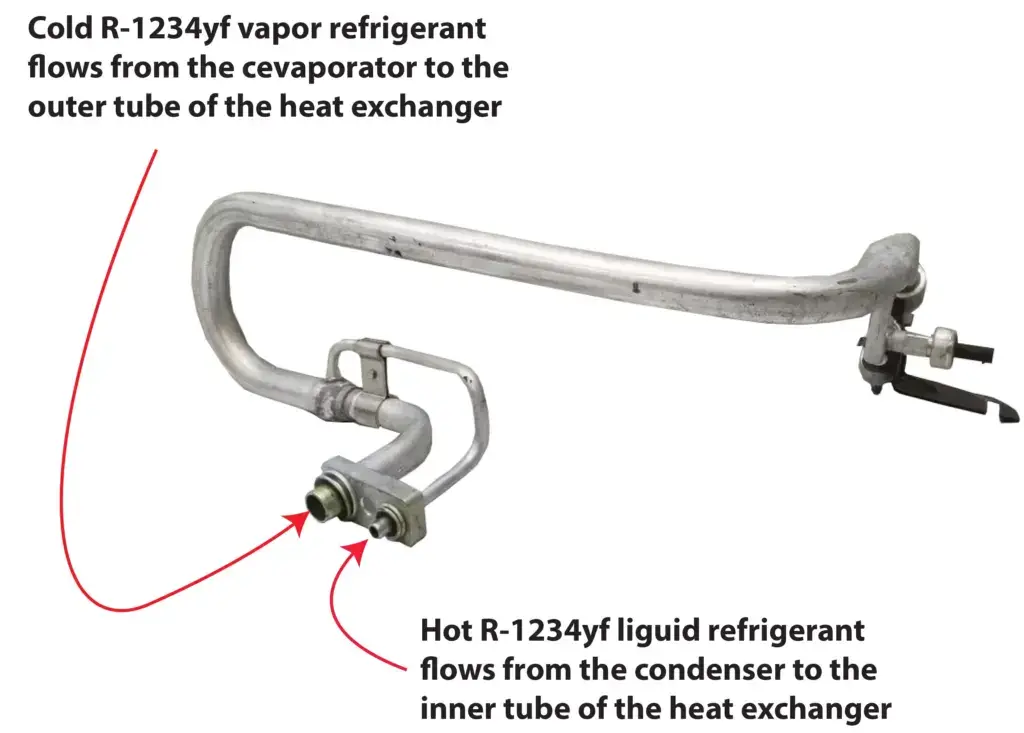Can you add R-134a to a R-1234yf system
6 Reasons Why You Should NEVER Add or Retrofit R-134a into an R-1234yf AC System
Aside from the fact that it’s illegal to add or retrofit R-134a into an R-1234yf system, it’s horrible on a more practical level; R-134a doesn’t work well in an R-1234yf system, and it can damage the system, costing a bundle.
Here’s why it’s a horrible idea to add or retrofit R-134a into a R-1234yf system
1) The R—1234yf expansion valve is incompatible with R—134a—The expansion valve for R—1234yf refrigerant will not work with R—134a refrigerant. Adding R-134a will result in improper refrigerant flow, causing a loss of cooling performance or durability concerns.
2) The R-1234yf suction line heat exchanger will cause compressor problems — Most compressors used in R-1234yf systems use a control valve for pressure control of the variable displacement features. The suction line heat exchanger will affect the suction line pressure drop if you fill the system with R-134a refrigerant, which will then negatively affect the pressure control in the compressor. The result will be a drop in cooling and evaporator coil freeze-up.

The inline heat exchanger is a tube within a tube. The hot refrigerant leaving the condenser is cooled by the cold refrigerant, which leaves the evaporator.
3) Dual-zone control systems can be damaged by using R-134a — In dual zone HVAC systems that use two evaporators, using R-134a can cause oil trapping in the rear evaporator, resulting in compressor failure.
4) Substituting will affect evaporator operation — Evaporator control can be either pressure or temperature-regulated. Different sensors are required if you plan to change to R-134a. In some vehicles, replacing the evaporator temp sensor means removing the entire dash and heater box. R-1234yf systems that control freeze protection by pressure sensors may experience cooling loss if charged with R-134a.
5) Mixing R-134a and R-1234yf will cause problems — Mixing the two refrigerants will cause evaporator freeze up issues.
6) Mixing refrigerants will result in full contamination — If you ever need to have a shop work on your AC system, the contaminated mixture can damage the shop’s refrigerant recovery machine, resulting an a significant upcharge to you.
©, 2022 Rick Muscoplat
Posted on by Rick Muscoplat